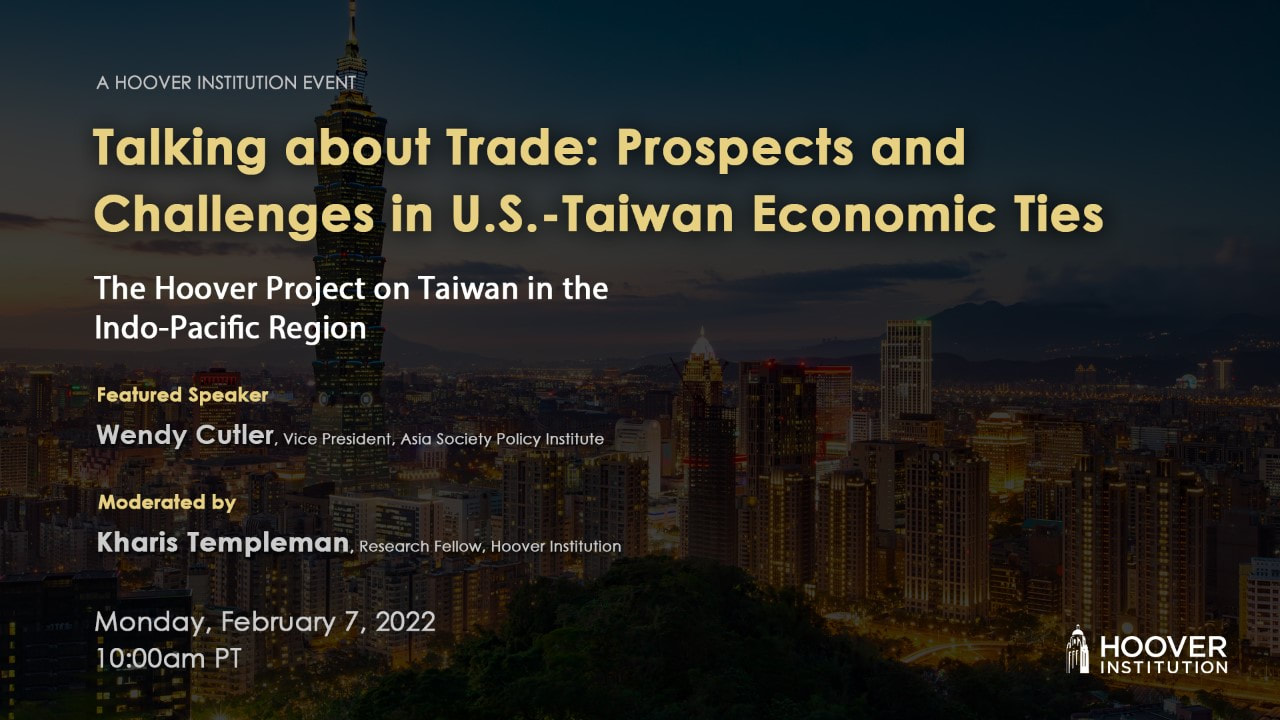
On February 7, Wendy Cutler spoke about the prospects for strengthening U.S.-Taiwan economic ties. Abstract is below; video is now available at the Hoover Institution Program on Taiwan in the Indo-Pacific (PTIP) event page.

| Kharis Templeman (祁凱立) |
|
||||
 On February 7, Wendy Cutler spoke about the prospects for strengthening U.S.-Taiwan economic ties. Abstract is below; video is now available at the Hoover Institution Program on Taiwan in the Indo-Pacific (PTIP) event page.  U.S.-Taiwan economic ties are at a crossroads. In 2020, President Tsai Ing-wen lifted a ban on U.S. pork imports containing the feed additive ractopamine, removing a long-standing irritant in trade relations with the United States. Last summer, the Biden administration held bilateral talks with their Taiwan counterparts under the Trade and Investment Framework Agreement (TIFA) for the first time since 2016. In more recent months, the two sides have begun additional discussions about strengthening the resilience of global supply chains, including the supply of one of Taiwan’s most strategically important exports: semiconductors. In this discussion, Wendy Cutler of the Asia Society will comment on these developments and the prospects for deepening U.S.-Taiwan economic relations in a moderated conversation with Hoover Research Fellow Kharis Templeman.
0 Comments
On February 18, I had the privilege of joining a strong group of witnesses in testifying before the US-China Economic and Security Review Commission on the topic of "Deterring PRC Aggression toward Taiwan." The USCC has a congressional mandate "to monitor, investigate, and submit to Congress an annual report on the national security implications of the bilateral trade and economic relationship between the United States and the People’s Republic of China, and to provide recommendations, where appropriate, to Congress for legislative and administrative action." I can still remember when I first became familiar with the depth and quality of USCC's annual report, when I was an undergraduate taking -- what else? -- Chinese politics with Melanie Manion at the University of Rochester. Parts of it were assigned reading then, and parts no doubt still are now, 20 years later, in the many Chinese security and politics courses around the country. So it is gratifying and a bit humbling to be in a position to contribute in some small way to the next iteration. I also want to note here that, while I was an undergraduate, I received crucial funding from the National Security Education Program (NSEP, now known as the Boren Awards) to study abroad in Beijing and Taipei. That experience kindled my interest in Taiwan, set me on my current trajectory and, quite literally, changed my life. I hope that robust funding for studying the language and culture of countries that have national security implications for the United States will be available for years to come--it is a smart investment in our future, and an increasingly important incentive to learn a foreign language in an era when the numbers of American students studying abroad in China has dropped precipitously. I would not be in a position today to contribute to the public conversation on Taiwan's security issues without the help of the Boren program, and I hope my testimony last week will go some small way toward repaying the investment NSEP made in me and my career. The full video of the panel and the written testimony, including my own, are available at the USCC hearing website. In addition, since it is much abridged from the written testimony, I have posted my oral remarks below. Good morning. Thank you for inviting me to appear before you today. I have been asked to cover quite a lot of ground in my written testimony, so in my oral remarks I’m going to focus on my comparative advantage in this hearing: How to Assess Taiwan’s Will to Fight. 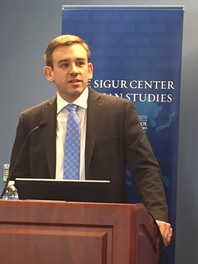 I had the privilege yesterday of joining a two-panel roundtable session at George Washington University's Sigur Center for Asian Studies on the probable outcome and impacts of the upcoming Taiwan elections. Thanks to all who came to the event and asked great questions, and to Bruce Dickson for the invitation to participate. I've gotten a couple requests for the slides from my presentation; they're linked here. The short version of the talk: reform of the Legislative Yuan should be at the top of the priority list for the next president. Outside of Taiwan, the potential twists and turns in cross-Strait relations dominate the conversation and tend to overshadow everything else happening in the domestic arena. But there are a lot of problems facing Taiwan right now that don't directly involve cross-Strait relations. The incoming administration will face several daunting domestic policy challenges, including:
Whatever the next administration tries to do, it will face opposition from some corners of the legislature representing vested interests that would lose out under reforms. Under the Legislative Yuan Speaker Wang Jin-pyng, the LY's cross-party negotiation mechanism has in practice given any party caucus--even one with just three members--the ability to block most legislation. So the current system will prevent major changes on any of these issues unless Speaker Wang is replaced and the negotiation mechanism is weakened or abolished. If the DPP wins a majority in the legislature, it will have a golden opportunity to reform the party caucus system and make it easier to pass legislation with a simple majority vote. It's critical for their own political future, for Tsai Ing-wen's, and probably for Taiwan's, that they do. On October 17-18, 2014, the Taiwan Democracy Project will put on our annual conference on Taiwan's democracy. This year's theme is the politics of polarization. The conference is free and open to the public; you are encouraged to register at the official event page, here. The formal announcement is below.  Over the past year and more, Taiwan’s political elite has been deadlocked over the question of deepening economic relations with the People’s Republic of China. This controversial issue has led to a standoff between the executive and legislative branches, sparked a frenzy of social activism and a student occupation of the legislature, and contributed to President Ma Ying-jeou’s deep unpopularity. On October 17-18, the Taiwan Democracy Project at CDDRL, with the generous support of the Taipei Economic and Culture Office, will host its annual conference at Stanford University to examine the politics of polarization in Taiwan. This conference will bring together specialists from Taiwan, the U.S., and elsewhere in Asia to examine the sources and implications of this political polarization in comparative perspective. It will include a special case study of the Trade in Services Agreement with China that triggered this past year’s protests, as well as a more general overview of the politics of trade liberalization in Taiwan, prospects for Taiwan’s integration into the Trans-Pacific Partnership and other regional trade agreements, and a consideration of the implications for Taiwan’s long-term democratic future. Conference speakers will include: Chung-shu Wu, the president of the Chung-hwa Institute of Economic Research (CIER) in Taipei; Steve Chan of the University of Colorado; Roselyn Hsueh of Temple University; Yun-han Chu, the president of the Chiang Ching-kuo Foundation; and Thitinan Pongsudhirak of Chulalongkorn University in Bangkok. Panels will examine the following questions: 1. What are the sources and implications of political polarization in Taiwan, and how have these changed in recent years? 2. How does Taiwan’s recent experience compare to political polarization in other countries in Asia (e.g. South Korea, Thailand) and elsewhere (the US)? 3. To what extent does the latest political deadlock in Taiwan reflect concern over the specific issue of trade with the People’s Republic of China, versus a deeper, systemic set of problems with Taiwan’s democracy? 4. How are globalization and trade liberalization reshaping Taiwan’s domestic political economy, and what are the prospects for forging a stronger pro-trade coalition in Taiwan that transcends the current partisan divide? The conference will take place October 17-18 in the Bechtel Conference Room in Encina Hall at Stanford University. It is free and open to the public. The full conference agenda is available here. 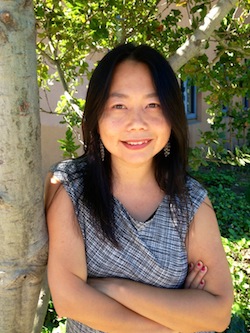 On May 5, 2014, the Taiwan Democracy Project will welcome Roselyn Hsueh to Stanford for a very timely talk on the politics of trade in Taiwan. Dr. Hsueh is an assistant professor of political science at Temple University and a visiting scholar in the Religion, Politics, and Globalization Program at U.C. Berkeley. Her talk is entitled, "Economies and Identities: The Politics of Taiwan's Globalization in the Age of China." The talk is free and open to the public, although you are encouraged to RSVP to [email protected]. The talk abstract is below. UPDATE: The official event page is here. Professor Hsueh's research focuses on the politics of market reform, comparative capitalism, development, and other areas of international and comparative political economy. Her publications include China’s Regulatory State: A New Strategy for Globalization (Cornell University Press, 2011) and “China and India in the Age of Globalization: Sectoral Variation in Postliberalization Reregulation,” Comparative Political Studies 45 (2012): 32-61. She received her Ph.D. from U.C. Berkeley and has served as a Hayward R. Alker Postdoctoral Fellow at the University of Southern California and conducted research as a U.S. Fulbright Scholar at the Institute of World Economics and Politics, Chinese Academy of Social Sciences. Economies and Identities: The Politics of Taiwan’s Globalization in the Age of China
For several weeks in March and April, university students in Taiwan camped out in the legislative and cabinet offices to protest the Cross-Strait Agreement on Trade in Services between China and Taiwan. Joined by hundreds of thousands of Taiwanese, spilling out to the streets, the demonstrators claim President Ma Ying-jeou negotiated the agreement with China without seeking any public input and bypassing the legislative process entirely. Implications of this historical social movement include the functioning of Taiwan’s democratic institutions, which have undergone regime change but democratic consolidation remains in question. Additionally, a potential cross-strait crisis can affect U.S.-China relations in the post-Cold War era. Two important forces are also at play: China’s meteoric playing-by-its-own-rules economic rise, and the evolving Taiwanese national identity after its transition to democracy. This talk will center on the national-specific consequences of liberal trade and democracy for Taiwan’s economic globalization and political development. 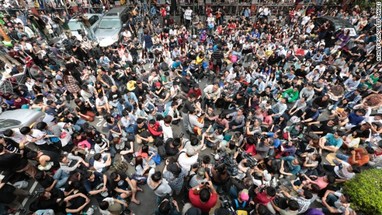 The Student-Led Occupation is a Big Deal for Taiwanese Politics For years there have been daily protests near the legislature in Taipei. And there are frequent demonstrations, and scuffles, by legislators on the floor of the Legislative Yuan. But this confrontation is different. I cannot recall another time in recent history when protestors have actually invaded the legislature and prevented sessions from being called to order. For that reason alone, this student movement is an important development. The Cross-Strait Trade Agreement is Not Just about Trade It's also a big deal because it potentially broadens the challenges to the Ma administration’s vision of closer economic integration with the People’s Republic of China. The involvement of students, in particular, could move the framing of the services agreement bill from just another partisan fight to a deeper battle over Taiwan's economic future, and its democracy. And on those points, there are clear concerns. This may be almost too obvious to mention, but the chief worry driving much of the energy against the bill is that it represents further commitment to economic integration with the People's Republic of China--the same China that is an unabashedly authoritarian state, a rising military power in East Asia, an economic behemoth, and a regime vowing to bring Taiwan under its political control, by force if necessary. It's also a state whose leaders are clearly uncomfortable with the way democracy works in Taiwan. The formula they have offered for unification, the "one country two systems" plan under which the PRC administers Hong Kong, doesn't look very appealing right now to most Taiwanese, especially given the lengths Beijing has gone to avoid popular elections of Hong Kong leaders. The Ma administration may well be right in thinking Taiwan can reap economic gains without making political concessions to the PRC. But it hasn't made that case effectively to the large majority of Taiwanese who oppose closer political integration. Instead, the cross-Strait services trade agreement has become a focal point for that opposition: the cross-Strait agreements have never been solely about trade, but they risk becoming solely about politics. And even when the conversation is about trade, the Ma administration hasn't helped its case. All free-trade agreements create winners and losers, and Ma has focused on the forecast economic benefits without mentioning the losses. There is not much of a plan to compensate those whose livelihoods would be negatively affected under the agreement, or even to demonstrate that the administration is concerned about these people. With rising inequality, soaring housing prices, and an increasing youth unemployment rate, this does not appear to be a wise political strategy. Political Realignment in the Cards? Finally, the student protest is a big deal because it could represent the leading edge of a political realignment in Taiwan, from a national cleavage to an economic one. The same students who are occupying the legislature are among those whose economic futures do not look particularly bright right now. With its opposition to the cross-Strait agreement, the DPP is tapping into increasingly vulnerable segments of society that do not stand to gain from free trade agreements, whether with China or elsewhere. It's not clear how much of this protectionist streak is due to the "China factor" in Taiwanese politics, and how much is due to a fundamental opposition to further opening Taiwanese markets. The evidence from the legislature is mixed: the vociferous opposition there to US beef and pork imports, for instance, ostensibly on health grounds, stands in contrast to the smooth passage of free trade agreements with New Zealand and Singapore in the past year, and to the DPP's official support for the Trans-Pacific Partnership. But the potential is there for the DPP to move toward a more populist stance on trade and other economic issues, and to win votes with it. 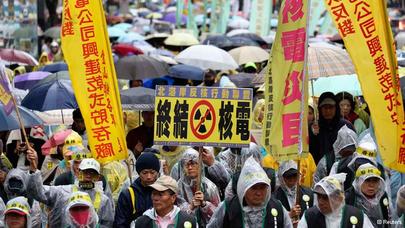 Student Activism is a Good Sign There are reasons to be heartened by the student-led occupation of the legislature. One of the signature features of Taiwan's democratic transition was the positive role played by civil society organizations. Taiwan's diverse, vibrant, and politically active civil groups have been important in broadening political participation in government and serving as watchdogs for administrative initiatives. So it is encouraging to see a resurgence of activism, especially among younger generations who have been increasingly apathetic over the last decade. The Ma Administration's Wrong-footed Response Yet, as Dafydd Fell notes in this editorial, the Ma administration has been really bad at responding to concerns raised by these groups. The KMT, especially the big-business-friendly and technocratic elite favored by President Ma in the Executive Yuan, retains a strong inclination toward top-down policy-making that, to put it charitably, borders on paternalism. The Ma administration has a consistent pattern of disregard for democratic procedures designed to allow civil society organizations to raise questions about government policies, and statements by executive officials about popular protests have often been remarkably tone-deaf. The administration's response so far to the occupation of the legislature follows this same pattern, and it has reinforced the already strong public impression that President Ma is politically inept. Ma did not publicly acknowledge the occupation of the legislature, but did attend meetings of the KMT Central Standing Committee and the Cabinet, where he reportedly praised the KMT legislative caucus and stated the administration's determination to win passage of the agreement by June. In the absence of any public statement by President Ma, members of his government started sounding off on the protestors, including the head of the Control Yuan, Wang Chien-hsien (王建煊), who called the students "ignorant" and "used by politicians," and said they needed to be forgiven, "for they know not what they do." On Thursday, the Premier of the Executive Yuan, Jiang Yi-huah (江宜樺), asserted that the students were poorly informed and being misled and used by the DPP, and the KMT caucus whip Lin Hung-chih argued the students were "trampling on the dignity of the legislature and the people of Taiwan." By contrast, the response from Speaker Wang was much more measured, and, critically, ruled out for now the use of police to remove protestors by force. Given Wang's key position in the legislature, and his ability to mediate between the two main political camps, it appears that President Ma will once again be in the awkward position of depending on Wang get the agreement approved. Thus, the student protestors have at minimum succeeded in strengthening the hand of the legislature vis-a-vis the executive branch. I have mixed feelings about that outcome, but in comparative perspective it's not obviously a bad thing for democracy to have an assertive legislature consistently able to stand up to a presidential executive. Troubling Democratic Implications: Not Presidential Overreach, but Governmental Paralysis That said, some of the more outraged reactions to the KMT’s "undemocratic" attempts to get this agreement approved seem a bit hyperbolic to me. It's worth noting a couple things about this legislative outcome that are a bit odd, and worrying from the perspective of effective governance. First, the KMT controls a majority of the seats in the Legislative Yuan. Moreover, approval for the agreement is the top legislative priority of the Ma administration right now. And President Ma also doubles as the chairman of the KMT, from which he can threaten to expel any KMT legislators who vote against the pact. And yet the agreement is still tied up in the legislative process, and has been since June. To me, this episode demonstrates an under-appreciated fact about Taiwan's legislature--that minority parties are quite powerful. Think about this: on a bill that's the top priority of the ruling party's chairman, and with complete control over the executive branch and a comfortable majority in the Legislative Yuan, the KMT cannot get what it wants without some cooperation from the opposition! Whether or not you think that is a good thing in this particular case, it is troubling in a broader, systematic perspective. Many observers thought Ma Ying-jeou's victory in 2008 would usher in a new period of more effective executive-legislative cooperation; that hasn't happened anywhere near as frequently as predicted. Viewed in this light, the attempt by Chang Ching-chung to bring the bill to the floor for the second reading looks more like normal maneuvering via arcane parliamentary procedure than an unprecedented "illegal action". This kind of thing is common in democratic parliaments around the world; so are roll-call votes that require party members to support the party line. What's more worrying from an institutional perspective is that legislative procedures have once again broken down over a contentious issue, and that there's ambiguity about something as basic as who should be able to chair the committee reviewing the most important piece of business this legislature will face. Finally, the pact is the result of a bilateral negotiation, and the method of its review and potential approval has implications well beyond trade issues or cross-Strait relations. Amending it would require negotiations to be reopened, which is effectively the same as killing the deal. It is for this reason American presidents have to get Fast Track Authority from the US Senate in order to conclude free trade agreements--Fast Track ensures that any deal reached in negotiations will not be filibustered and cannot be amended, only be put to an up-or-down vote. Even if one thinks most trade agreements are terrible for Taiwan, the precedent set by the legislature's insistence on line-by-line review of agreements is really problematic: no country’s negotiators will believe that Taiwan is able to commit to deals that it signs. Taiwan already has huge disadvantages in its international relations--if it wants to be taken seriously as a good-faith ally or counterpart, it needs to be able to promise that its negotiators can deliver an up-or-down vote on any agreements they strike, as President Ma has tried to argue, without much success. The continued insistence by legislators that trade agreements be subject to renegotiation after they are signed is not in Taiwan's long-term interest. On October 11 and 12th, the Taiwan Democracy Project at the Center for Democracy, Development, and the Rule of Law at Stanford University, in cooperation with the Shorenstein Asia-Pacific Research Center, will hold its 8th annual conference, on the Trans-Pacific Partnership (TPP). The conference is open to the public. Further details and a place to RSVP are here. The event description is below. The TPP is a free trade agreement currently being negotiated by twelve Pacific Rim countries that has the potential to re-shape economic relations in the region for the coming decades. This conference will bring together policymakers and scholars from Taiwan with leading specialists from other Asian countries and the U.S. to examine the evolution, geopolitics and future of the TPP, and also to consider how Taiwan is responding to the challenge of freer trade and what its strategy for deepening its trade relations and maintaining its economic development should be.
Among the issues to be addressed are:
This event is co-sponsored by The Walter H. Shorenstein Asia-Pacific Research Center. |
About MeI am a political scientist with research interests in democratization, elections and election management, parties and party system development, one-party dominance, and the links between domestic politics and external security issues. My regional expertise is in East Asia, with special focus on Taiwan. Archives
January 2024
Categories
All
|